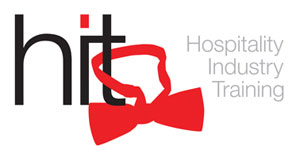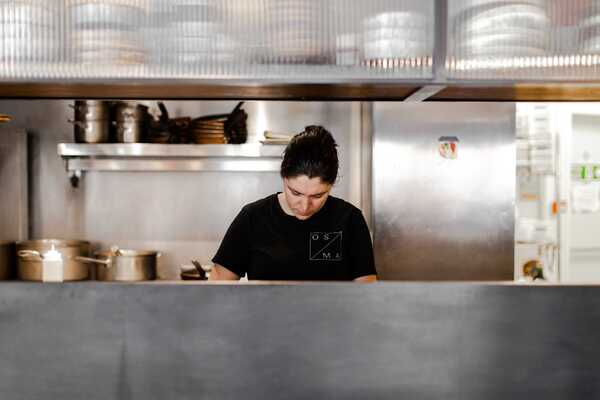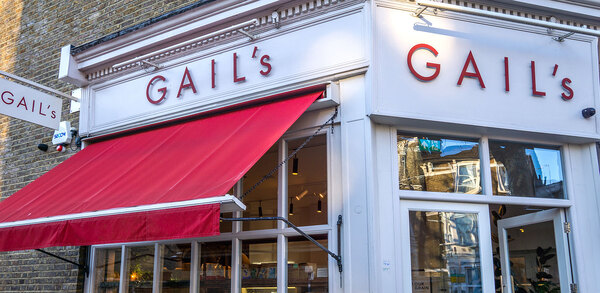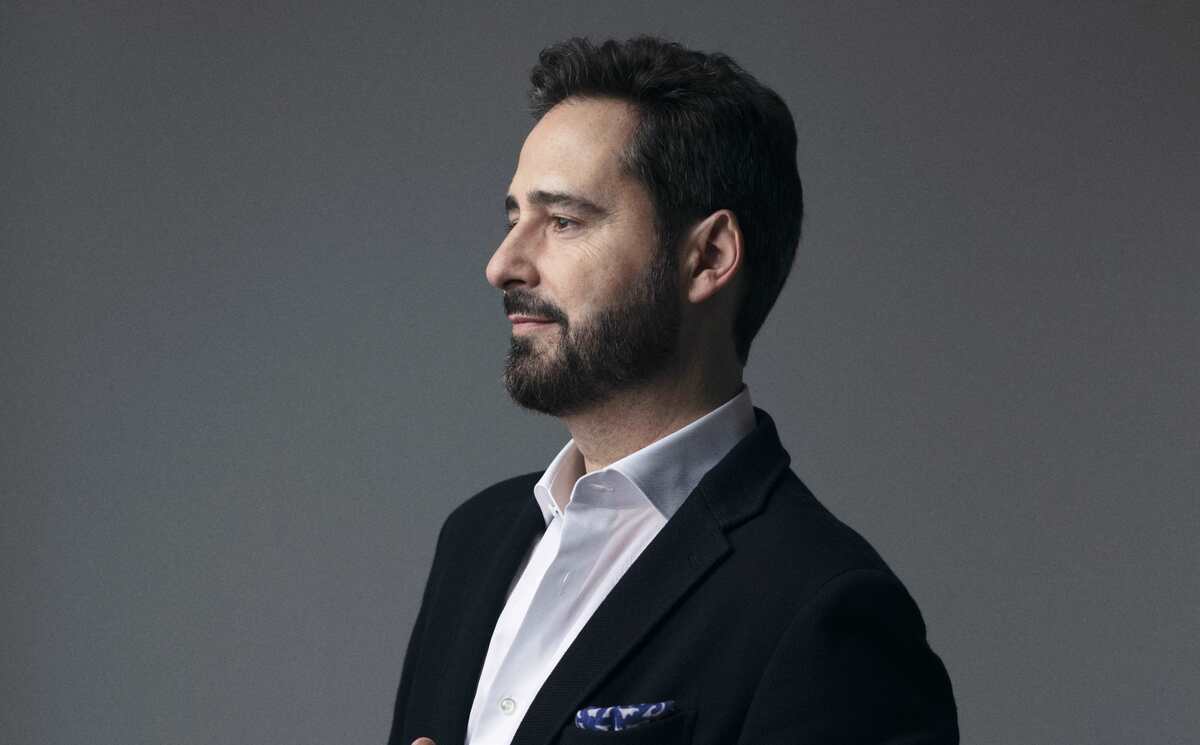Q&A session: The apprenticeship levy
The Caterer held an online question and answer session last week in association with HIT Training to give employers the opportunity to ask experts Jill Whittaker and Tony Allen about the levy
With the introduction of the apprenticeship levy not far away, you may well have planned what you are doing at this stage, but may still not understand some of the finer points and what implementation will involve.
That's why The Caterer decided to hold an online discussion on www.thecaterer.com in association with HIT Training, where employers could ask experts Jill Whittaker, managing director of HIT Training, and Tony Allen, chief executive of AAS, a company which works as an advisor to HIT Training, about what will be involved for companies paying the levy.
Amanda Afiya, editor, The Caterer: To start us off, can I ask what main advantage the levy will bring?

Gary Brenton: How do we go about paying the levy?
TA: Your payroll team will need to declare the costs of the levy to HMRC when they do their normal monthly return. If your payroll for the month is more than £250,000, you will need to include a levy payment.
Daniel Vale: Is there any further guidance on what constitutes 20% off-the-job training and how it needs to be accounted for/documented?
Jill Whittaker (JW): In Version 2: P32.4.3 of the latest rule it says: "Off-the-job training does not include training which takes place outside the apprentice's paid working hours." Previously this referred to "normal" working hours. To expand on that, it means that you can't expect a member of staff to use their own time to complete the whole programme, and that employers need to allow time in the working day for learning. It doesn't mean that you have to do day release.
JW: There's no formal arrangement at this time, but having been subject to multiple audits and inspections over the years, I'd say it would be a brave person who didn't record it somehow.
Richard: Which are the higher level apprenticeships relevant to the hospitality sector?
JW: Hospitality management at Level 4 is currently the offer. We are also looking into hospitality-focused degree apprenticeships via the Chartered Management Institute route, too.
Alexa Bartlett: How many apprentices would you need to use up all your levy, so that it doesn't get wasted?
JW: That would depend on your total levy payments, plus the government's 10% top-up. It's different for every employer.
Justine: If your company does not have a payroll of over £3m, is there a percentage we have to pay towards the apprenticeship?
JW: You pay 10% towards the apprenticeship and the government pays the remaining 90%.
Justine: Is this 10% a one-off payment or is it split out over the months?
JW:
Rob: Isnât an NVQ already an accredited way of demonstrating training that an employer does with an employee (together with the assessment from an organisation such as HIT)?
JW: The new apprenticeship standards donât include NVQs. Apprenticeship standards have been developed by groups of employers to respond to todayâs workforce needs. They are flexible to allow employers to personalise them to their business needs, and broad enough to answer the needs of the industry which they serve. Employers are loving them so far!
Adrian Bayly: In the contract catering industry, the levy charges are being passed onto clients as added labour costs. What is the argument against this?
JW: A well-trained and skilled workforce delivers a more efficient business; not only that, but it has been shown that by investing in your staff, you get better staff loyalty and reduced turnover. This all contributes to the bottom line and, if the levy is fully utilised, stops it being a cost.
Annette Allmark: Adrian, itâs also worth noting that 80% of companies who invest in apprentices report an increase in staff retention… thatâs significant because the annual staff retention bill for hospitality is £274m.
JW: Thanks Annette. People 1st have lots of great statistics on how apprenticeships help the industry.
Adrian Bayly: Presumably the £3m payroll is per company, rather than per contract? For example, a small contract of, say £150,000 payroll would still need to add the levy if the company running it had an overall payroll greater than £3m?
JW: Yes, thatâs right. Businesses that are related for tax purposes are related for levy purposes, so some employers with multiple payrolls for multiple companies but one holding company will form one levy payer. Joint ventures have other rules based on who is the main partner.
Daniel Vale: Is there any practical guidance on how to pay the levy if associated companies have separate payrolls?
TA: The rules on associated companies are clear. In simple terms, the same rules apply to a company structure as are used for the payment of corporation tax. Where a business has clear control over a subsidiary, payrolls are usually combined for the purposes of the levy.
A small company: Are there any changes for a company with fewer than 50 employees from the old apprenticeships (funded by a provider)?
JW: For a company with fewer than 50 employees, only 16- to 18-year-olds are free of employer contribution. We have lobbied for further breaks for small enterprises and hope that the ministers are listening.
Daniel Vale: Also, if you have multiple payrolls, is there any guidance on how to assign the £15,000 allowance or is it up to the company to decide where to allocate this?
TA: It is up to you to determine how the £15,000 allowance is split across multiple payrolls.
Gary Brenton: At the moment we have many apprentices, all of which are fully funded, either because of their age or the provider has funding. Will this situation come to an end now? What would happen if we wanted to offer more apprenticeships than our account will fund?
TA: All apprentices who start before 30 April will be funded according to the current funding rules. Therefore, in effect, the levy will fund new starts from 1 May. If you wish to spend more money than is in your levy account, then you fall into the 90%/10% funding rules that apply to SMEs. There is no limit to the amount of additional money that you draw down, provided that you pay the 10%.
Alexa Bartlett: What is the cost for each level of apprenticeship? So if I had six commis chefs and six on NVQ level 3 (we have a payroll of more than £3m and need to pay the levy)?
JW: That depends on what you agree with your provider. Maximum cost for a commis chef is £9,000; most other Level three programmes in hospitality are at £5,000.
Gary Brenton: At what point can we access our levy account? Do we have to wait until we have built up enough funds to match the cost of an apprenticeship?
TA: Your funds will be in your levy account from 22 May. They are paid by the Skills Funding Agency (SFA) one month in arrears.
Rob: If someone joins us mid-way through an apprenticeship (say due to TUPE), would we continue with their current training provider or transfer them to ours? I would assume that the contract that they started with associated costs would remain?
JW: Itâs your call as to whether you continue with their apprenticeship. The SFA would say that itâs up to you how you continue â" from a practical perspective, however, it might make good sense, if they are happy with their existing provider and you can see they have got a good service, that you would leave it be. Itâs worth mentioning that we see a lot of TUPE working with contract catering, and nine times out of 10, TUPE staff tend to transfer to the new employers provider if itâs early in their programme (say, less than four months in).
If you have questions about the apprenticeship levy that youâd like to get help with from HIT Training, or for any other enquiries, email: appprenticeshiplevy@hittraining.co.uk. You can also check out some useful guidance from HIT Training online at: hittraining.co.uk/apprenticeship-levy
Tony Allenâs guide to the apprenticeship levy
Background
- Government target â" three million apprenticeships by May 2020 (2.3 million between 2010-2015)
- The apprenticeship levy will be introduced in April 2017 and will yield £3b a year
- New apprenticeship standards will replace frameworks by 2020
- An Apprenticeship Service online account will be available for levy payers
- A new âco-financingâ funding mechanism for SMEs will be introduced
- A new Institute of Apprenticeships will focus on quality and approvals
- The public sector has a target of 2.3% of its workforce to be on an apprenticeship programme by 2020
The standards
- The standards will be developed by employers with department/ministerial sign-off after a three-stage process: EoI, standard development, and assessment plan
- Ten employers will be needed to develop the new standards, which will take up to a year
- Standards must be job-specific, range from Level 2 to Level 7, and do not need to contain a qualification
- There will be independent end-point assessment for the standards
Paying the levy
- The levy is payable by companies with payroll(s) of more than £3m at 0.5% from April 2017
- Payroll is defined as that relating to Class 1 National Insurance contributions
- It is paid through PAYE
- Companies within a âgroupâ structure with individual payrolls are deemed to be âconnectedâ, and will pay the levy based on the whole group
- It is your responsibility to pay the levy monthly
- Non-payment penalties apply as corporation tax
Getting it back
- Register now for the Apprenticeship Service online account (which applies to employees in England only)
- You will receive a 10% top-up from the government on this account
- The English proportion is based on the percentage of your payroll costs that relate to England.
- For Scotland, Wales and Northern Ireland, the funding of apprenticeships remains unchanged â" at least in 2017 and 2018
- The funds can be spent on training and assessment of apprentices on a recognised apprenticeship, by a Skills Funding Agency-registered provider
- Apprenticeships are valued in 15 funding bands, from £1,500-£27,000
- You can negotiate a different rate with your provider. If you negotiate a lower rate, that is the amount that comes out of your Apprenticeship Service account. If you negotiate a higher rate, you must pay the difference
- There will be a monthly calculation of the levy amount into or out of the Apprenticeship Service account. The account cannot be âoverdrawnâ. If you overspend, then âco-financingâ rules apply for that month
- Funds are valid for 24 months
Funding for SMEs
- SMEs (with a payroll of less than £3m) do not pay the levy, and do not have an Apprenticeship Service account
- The government pays 90% of apprenticeship training costs and the company pays 10%
- Apprenticeships can be fully funded for business with fewer than 50 employees
- The apprenticeship will be delivered through a training provider, who is given an allocation by the government
Additional funds
- An additional £1,000 will be paid to employers and training providers for 16- to 18-year-olds on an apprenticeship programme
- Additional sums are available for English/maths training if the learner does not have GCSE at level C or equivalent
Timetable
- Sign up or register for your Apprenticeship Service account now at [www.gov.uk/guidance/ manage-apprenticeship-funds](www.gov.uk/guidance/ manage-apprenticeship-funds)
- Pay the apprenticeship levy from 1 April
- Begin drawing down funds from the Apprenticeship Service account from 22 May for all new starts from 1 May
- New funding arrangements (co-financing for SMEs for all new starts) will apply from 1 May




















